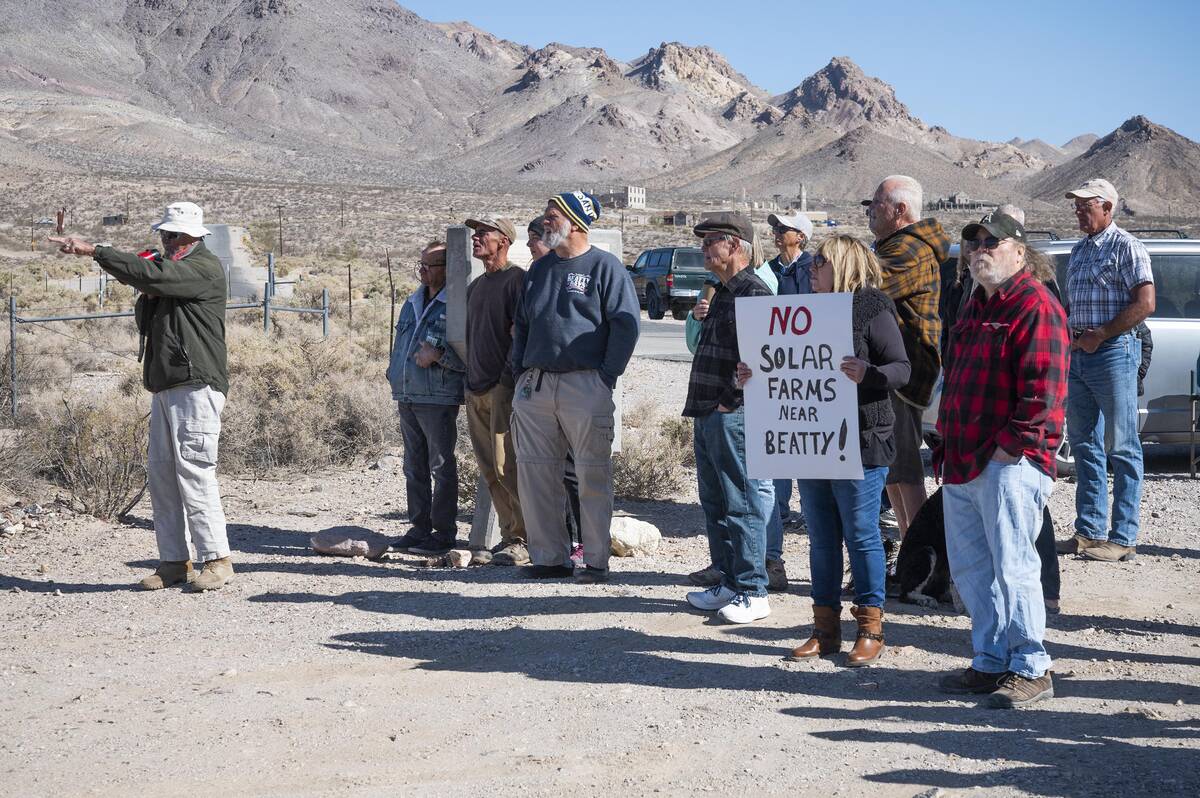Worried about new solar, wind or mining projects? Here’s how to get involved

In a state where the government owns more than 80 percent of the land, proposals to use it are common.
And for Nevadans, so is the instinct to protect the Silver State’s picturesque landscapes and precious natural resources.
That’s where the National Environmental Policy Act (NEPA) comes in.
Signed into law in 1970, it requires federal agencies like the Bureau of Land Management to take environmental effects into account before making decisions. When a proposed project might cause harm to the environment, it triggers a lengthy review — one that calls for public input at almost every step.
“I don’t know that many people know it exists,” said Frank Fritz, a UNLV law professor who worked at the Environmental Protection Agency for two decades. “But if you can go to a town meeting and talk, you can do this.”
Keeping track of public lands
What can require a NEPA process runs the gamut, including grazing permits, recreation area management plans, mines and pipelines. Generally, when a so-called environmental impact statement explaining potential harm is created, there will be opportunities to submit comments at in-person meetings and online.
But figuring out where and when to speak up against a project you may have concerns about is often difficult for the everyday person, Fritz said.
Some useful resources include the federal government’s document titled “A Citizen’s Guide to NEPA,” as well as the Nevada Department of Agriculture’s “A Rancher’s Guide to Participation in the NEPA Process.”
A useful place to keep track of projects making their way through a NEPA review is BLM’s national register, which includes all the documents for each project and instructions for participation.
In Nevada, NEPA has recently been most interwined with the national transition away from fossil fuels.
There are more than 80 proposed lithium mines that are either in the midst of a process or could begin one soon, in addition to solar energy expansions.
If you’re confused on how to get started or overwhelmed by thousands of pages of jargon, relying on the experts in your community is a good strategy, Fritz said, whether that’s a BLM employee, professor, environmentalist or local official.
“Get involved and try to involve your neighbors,” Fritz said. “Try to talk to experts to help you submit written comments. If you can go to the meetings, ask questions. Ask people to do what you want. Congress wrote NEPA to allow people to do this.”
Contact Alan at ahalaly@reviewjournal.com. Follow @AlanHalaly on X.